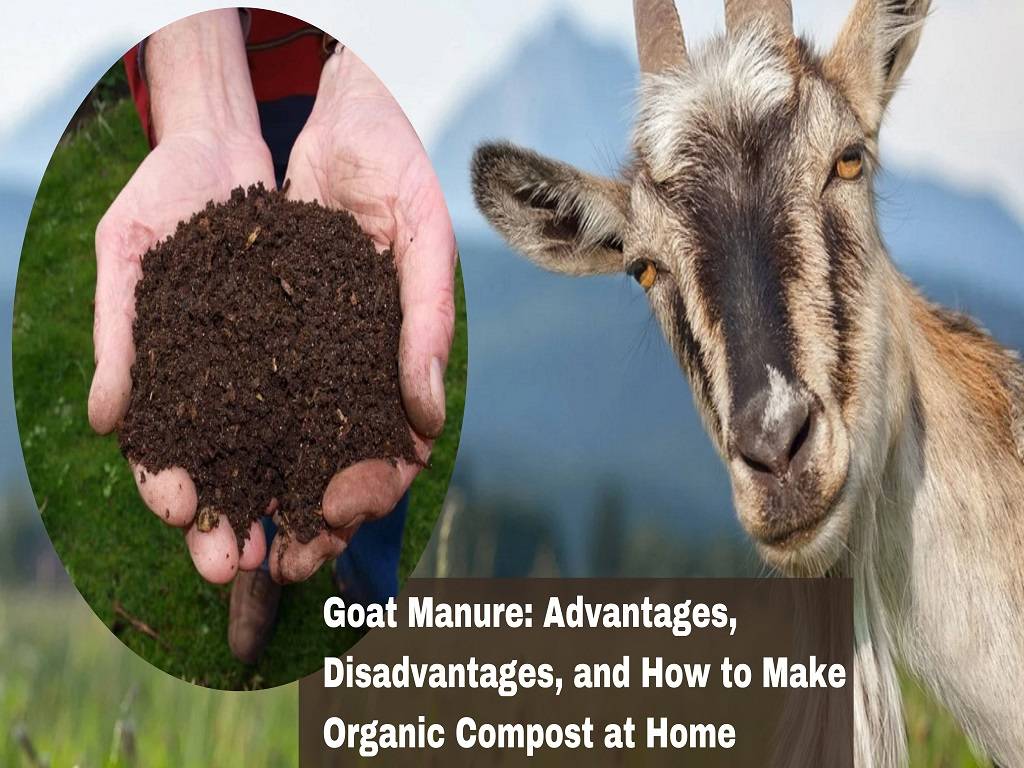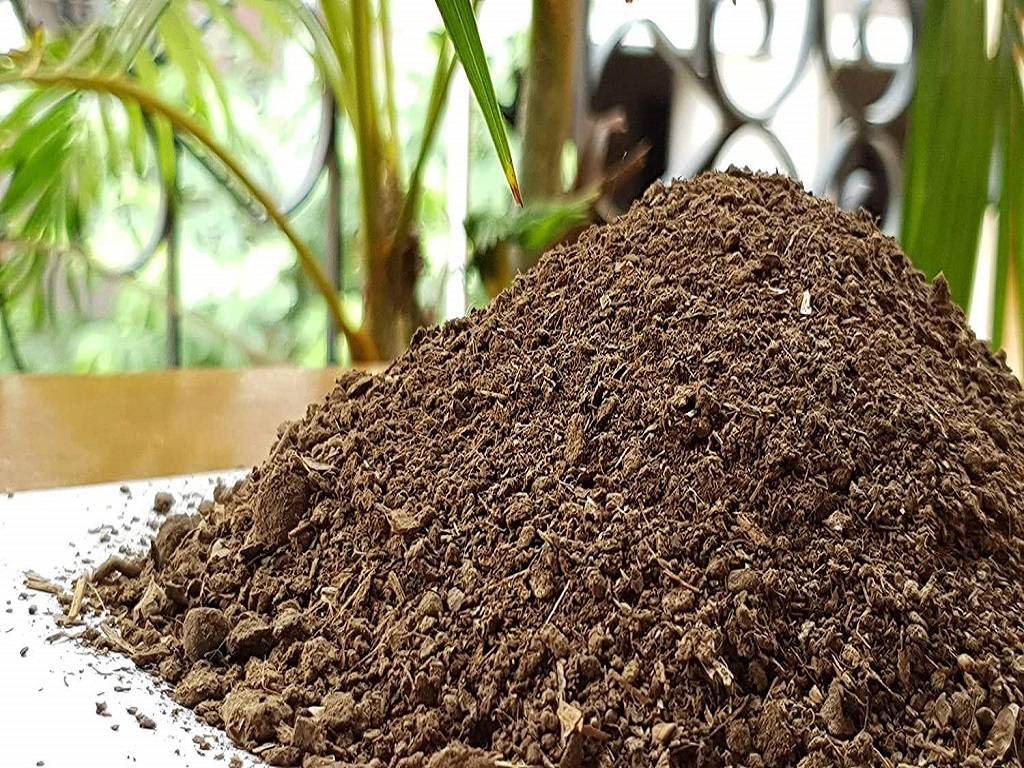
Different kinds of animal manure contain varying amounts of macronutrients, therefore they must be properly composted for use and applied at various rates to avoid harming plants by applying too much of one nutrient or another. Goat manure is much easier to spread and work with because it has a far lower odor than other types of manure and is much drier also.
The primary source of side income that can be produced on a goat farm is compost made from manure. Animal and plant wastes are called manures and are utilized as a source of plant fertilizer. As the manure breaks down, nutrients are released. These are complex organic compounds that are derived from plant, animal, and human residues and contain plant nutrients. Fertilizers are organic or synthetic compounds that contain plant nutrients. Let's discuss the advantages and disadvantages of goat manure.
Advantages of Goat Manure
-
Herbs, vegetables, and other crops benefit greatly from the use of goat manure as a fertilizer. Among other things, it is renowned for enhancing the soil's capacity to store water.
-
Goat manure must be composted before being added to soil, as with all manures. Prior to adding it to the soil, it is best to compost it for 4 to 6 months. Apply it to the soil well before 120 days have passed before harvesting your crop if you decide to use it before it has fully decomposed throughout the composting process.
-
Compared to cow manure, goat manure is drier. It has a mild odor and is simpler to spread and deal with. Additionally, it composts faster. With 22 pounds of nitrogen per ton, it has a higher nitrogen content than normal horse and cow manures. One ton of cow manure contains 10 pounds of nitrogen.
-
The pelletized goat manure's ability to increase airflow into compost piles and accelerate the composting process is another advantage of utilizing goat manure as fertilizer.
-
For both new and old gardens, goat manure is a wonderful soil conditioner. Since the soil texture is improved, water is used more effectively and more oxygen can reach the roots.
-
Goat manure, like all manures, provides a low-cost, pure supply of nitrogen and other nutrients. Because manure only contains a small number of nutrients, you may need to add additional fertilizers to it depending on the soil's fertility. On a fresh garden, apply 40 pounds of goat manure and till it to a depth of about 8 inches. Then, cover established beds with 1 to 2 inches of manure each year and till under.
Precautions to be taken while applying Goat Manure
Pathogens in fresh animal manure, particularly goat manure, can make people ill. Use only well-composed goat manure, especially if you plan to apply it to crops that will be consumed. Then, for crops like maize that don't come in contact with the soil, apply it at least 90 days before. Even if goat manure is a natural product, it does not guarantee its safety. It can run off and harm groundwater if used excessively. When heavy rain is predicted, particularly, till it is thorough and stay away from sloped areas when using it.

Disadvantages of Goat Manure
Since goats consume hay and grass, their manure may include weed seeds. This is how the majority of grazing animals—like sheep and horses—are. To minimize this issue, always use well-composted goat manure. Spread mulch over the soil to avoid weeds, and then get rid of any weeds that come up as soon as they do before they spread to seed.
How to make Goat Manure Compost?
Nutrients in Goat Manure
Animal manure, which is widely considered an agricultural product, can be used as fertilizer for pastures, fields, and grass production. Compost generally helps in the growth of plants and is a great source of the plant nutrients nitrogen (N), phosphorus (P), and potassium (K). Compost also restores organic matter and nutrients like calcium, magnesium, and sulfur, restoring soil fertility and quality.
The type of animal and food, bedding type and quantity, moisture content, and storage technique all affect the compost's nutrient content. For example, goat manure has more nutrients than other animal manures. Since it is readily available in huge quantities, manure from this source is combined with cow manure.
Usual nutrient composition of goat manure
|
Manure |
Nitrogen (N)%
|
Phosphorus (P)% |
Potassium (K)% |
|
Fresh goat manure
|
1.34 |
0.54
|
1.56 |
|
Composted goat manure
|
2.23 |
1.24
|
3.69 |
|
Goat urine |
1.13 |
0.05 |
7.9
|
How to compost goat manure?
Since goat dung usually contains pathogens, parasites, parasite eggs, and other potentially dangerous elements, it should not be applied directly to the soil. On the other hand, fresh goat dung can burn plant roots as it breaks down in the soil and releases heat. In contrast, goat dung that has been composted prior to application will be broken down and converted into nutrients by microorganisms. Furthermore, the high temperature that composting generates, between 60 and 70 degrees, kills parasites and pathogens in dangerous materials.
Composting goat manure includes the following steps:
-
Prepare the composting's basic materials. Goat dung can be mixed with additions like sawdust and straw.
-
Rice husk should be blended uniformly with maize flour to manage moisture, air permeability, and C/N ratio while providing glucose to microorganisms and fermented culture.
-
Second, goat manure and supporting components like sawdust and straw can be layered. They can be placed in fermenting grooves or stacked in long beds.
-
Windrow compost piles are typically 2 m or longer in length, 1.5 to 2 m wide, and 0.8 to 1.5 m high.
-
The compost pile should then be continuously turned until the fermentation is finished. For the first week, 2-4 times a day, is enough. For the following weeks, once every two days is adequate.
Goat manure compost is safe and beneficial once it has been composted. You can also make manure tea out of it or compost it along with other scraps. Composting is the process through which organic matter naturally decomposes into a dark, loose substance resembling soil that can be used to improve gardens. Additionally, it is an ongoing natural recycling process in nature, which considerably reduces household waste.
Using goat manure for fertilizer
For optimum growth, plants need a balance of nutrients, which this manure provides. Additionally, goat droppings absorb more nitrogen, enhancing the fertilizing power of manure. Using goat dung in garden areas is the best technique to improve the soil. It can be applied straight to vegetable and flower gardens without burning them because it has been pelletized. Pellets are simple to handle and simple to spread and till into the garden.
Add equal amounts of goat manure, sand, and straw to spring beds. Depending on how the plant grows over the season, adjust the quantity. Fresh goat dung added directly to plant areas is one of the most efficient ways to improve the soil. In the fall, the garden should be fertilized with goat dung, and over the winter, the soil should be allowed to absorb the fertilizer. Goat manure fertilizer is supplied by local farms, garden supply stores, and shops.
Goat dung for fertilizer speeds up the composting process since the pelletized excrement allows for greater airflow into compost piles. Working on the pile during the fall and winter months in preparation for spring application or removing what is necessary for a specific job until composting is finished are both necessary when composting goat manure.
-
What nutrients are in Goat manure?
Goat manure is an excellent source of plant nutrients nitrogen (N), phosphorus (P), and potassium (K).
-
Is Goat manure better than cow manure?
Similar to sheep manure, goat manure is drier than cow or horse manure. In general, goat manure contains more nitrogen than horse and cow manure.
-
Is Goat manure good for plants?
Gardeners can grow healthier plants and yields by using fertilizer made from goat manure.
-
Is goat manure organic?
Goat manure is an excellent source of animal protein in the form of meat and milk, as well as organic fertilizer for agricultural land. Solid goat manure has a 46.58% organic carbon content, a nitrogen concentration of 1.34%, a phosphorus level of 0.54%, and a potassium content of 1.56%.
After composting for 30 days, the compost's nitrogen, phosphorus, and potassium contents were discovered to be 2.23%, 1.24%, and 3.69%, respectively. Additionally, goat urine includes nutrients like potassium (7.3%), phosphorus (0.05%), and nitrogen (1.13%).
















